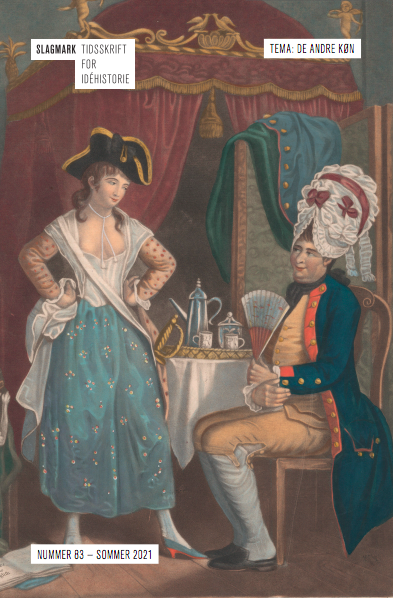Hegel i Paris – Beauvoir og den feministiske kritiks dialektiske arv
DOI:
https://doi.org/10.7146/slagmark.vi83.144204Nøgleord:
Beauvoir, contradiction, critique, feminist philosophy, French HegelianismResumé
While it is well-known that the intense albeit short-lived Hegel renaissance of the 1930s’ and 1940s’ France had a huge influence on later intellectual currents of the 20th century, its importance to Simone de Beauvoir is often left unnoticed or reduced to her appropriation of the master/slave dialectic. This paper argues that Beauvoir – who came to know Hegel through the work of Alexandre Kojève as well as her own studies during the war – in fact, makes recourse to Hegelian dialectics in her conceptual composition of the ‘woman problem’ in The Second Sex. The paper identifies four figures of femininity, from the abstract mystique of the ‘Sphinx’ to the internal conflict of ‘The Little Mermaid’, and shows how the negative determinations culminate in a figure of contradiction, which implies that we may interpret The Second Sex as a work of critical thought. This means that the Hegelian legacy of feminist critique has as its objective an emancipatory project rather than equality
Downloads
Publiceret
Citation/Eksport
Nummer
Sektion
Licens
Ophavsretten til artiklerne i Slagmark deles mellem forfatter og Forlaget Slagmark.
Artikler og tekstmateriale publiceret i Slagmark må citeres, downloades og videresendes for ikke-kommerciel brug, under forudsætning af normal akademisk reference til forfatter(e) samt tidsskrift, årgang, nummer og sider.
Brug og distribution af tekstmateriale både i form af papirkopier og elektroniske kopier, til undervisningsbrug på uddannelsesinstitutioner og intern brug er tilladt efter aftale med Copydan Tekst & Node. Brugen skal ske inden for aftalens rammer.
Artikler og tekster må kun genudgives med eksplicit tilladelse fra forfatter(e) og tidsskriftet med en anerkendelse af værkets første publicering i nærværende tidsskrift.





